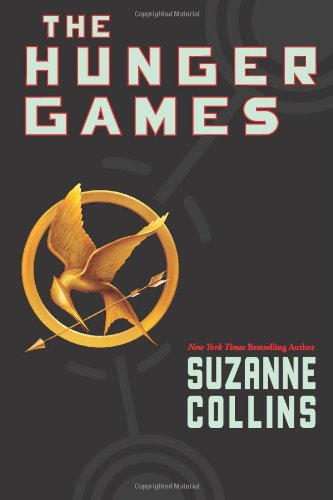All Nonfiction
- Bullying
- Books
- Academic
- Author Interviews
- Celebrity interviews
- College Articles
- College Essays
- Educator of the Year
- Heroes
- Interviews
- Memoir
- Personal Experience
- Sports
- Travel & Culture
All Opinions
- Bullying
- Current Events / Politics
- Discrimination
- Drugs / Alcohol / Smoking
- Entertainment / Celebrities
- Environment
- Love / Relationships
- Movies / Music / TV
- Pop Culture / Trends
- School / College
- Social Issues / Civics
- Spirituality / Religion
- Sports / Hobbies
All Hot Topics
- Bullying
- Community Service
- Environment
- Health
- Letters to the Editor
- Pride & Prejudice
- What Matters
- Back
Summer Guide
- Program Links
- Program Reviews
- Back
College Guide
- College Links
- College Reviews
- College Essays
- College Articles
- Back
The Hunger Games by Suzanne Collins MAG
What gives a book series cult status? Is it a captivating universe? (Think Harry Potter.) Is it unforgettable characters? (Think Sherlock Holmes.) Is it the transfer from book to screen? (Think Lord of the Rings.) Answer: all three, plus that winning quality of brilliance.
America's recent cult book series is The Hunger Games trilogy by Suzanne Collins. These days, especially with the movie, it's rare to find a teen who isn't familiar with its basic premise.
For those who actually haven't read it yet, I'll give you a rundown of the first book (aptly titled The Hunger Games): In a post-apocalyptic dystopia with a Big Brother-esque government, fierce 16-year-old Katniss Everdeen is forced to participate in a savage, fight-to-the-death game with 23 other teens. It is like gladiators except the fighters are teens, there are mutated beasts roaming in the wild, and quite often brains do triumph over brawn.
But that barely touches on all the topics addressed in The Hunger Games. The gladiatorial Games are broadcast like a reality show, where spectators cheer for players' successes and gruesome deaths. It's “Survivor,” literally speaking.
The government that runs the Hunger Games is both deceptive and vindictive. The Games have been held for 70 years, so what happens when tradition – no matter how despicable – is challenged?
The novel's most chilling and intriguing factor is its relation to modern society. Like 1984 and Ender's Game, it depicts a futuristic society but reflects the present. It might be written simply, but its themes and descriptions of ugly situations are not kid-friendly. The level of insight and social warnings surprised me; it showed a depth I wasn't expecting.
This book is grim, but it warns of what might happen if today's problems are taken to the extreme: a controlling government, the growing morbidity of entertainment, survival in a cut-throat situation – the list goes on.
Another aspect which has catapulted this series to popularity is its fiery protagonist, Katniss Everdeen. Though we may become frustrated or disappointed by her choices, she is an admirable, strong character. At the start, she volunteers for certain death in order to save her sister. Katniss is undeniably smart; she knows how to act in front of the audience to gain viewer support. Though she can be ruthless, she's certainly not heartless, as shown following another tribute's death. She has qualities we respect: loyalty, determination, bravery, and strength. Plus, she's a female who can win her own battles.
I wasn't prepared to like The Hunger Games, but I found that it's one series that isn't overrated. Both captivating and intense, Collins's The Hunger Games will enthrall readers with its fast-paced action, not-so-subtle admonitions for the future, and an unsinkable, undaunted heroine.
Similar Articles
JOIN THE DISCUSSION
This article has 5 comments.


13 articles 2 photos 125 comments
Favorite Quote:
"If you can fly, don't stop at the sky cause there are footprints on the moon" - Owl City